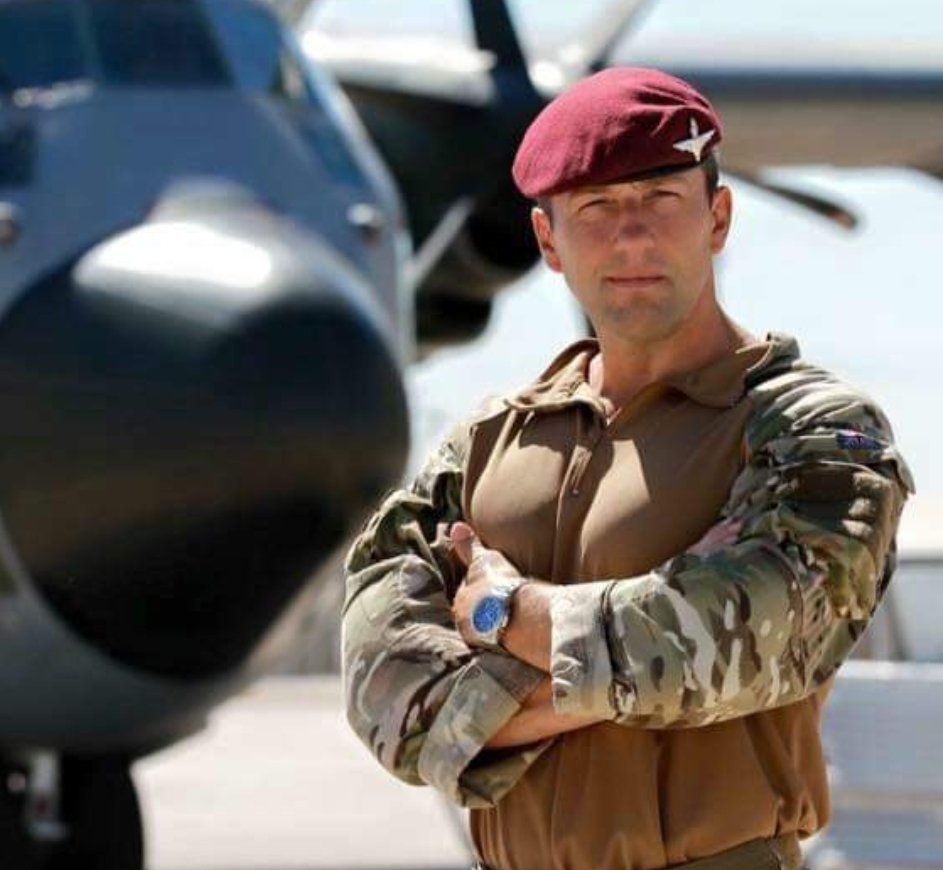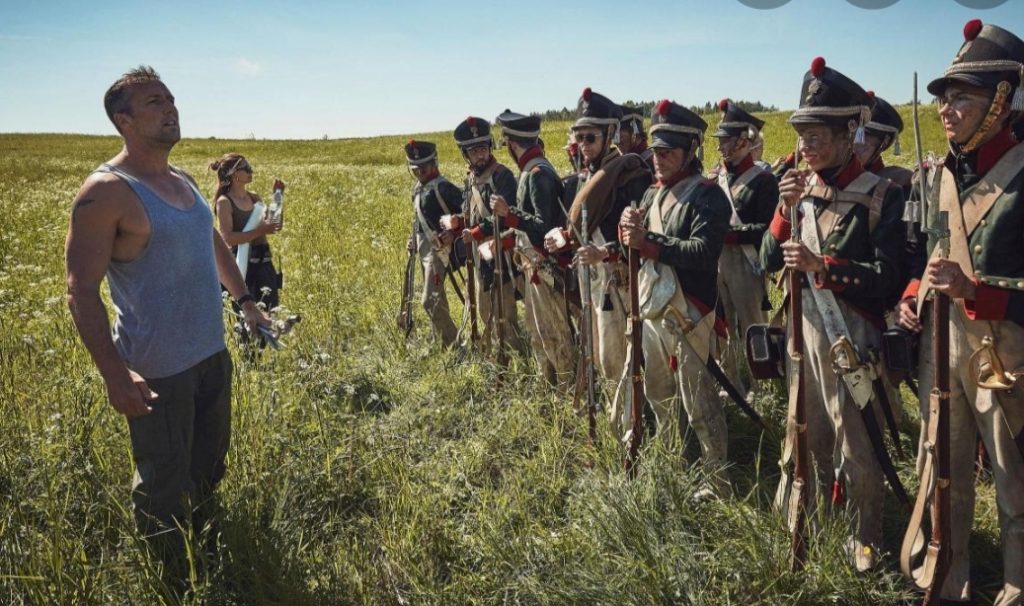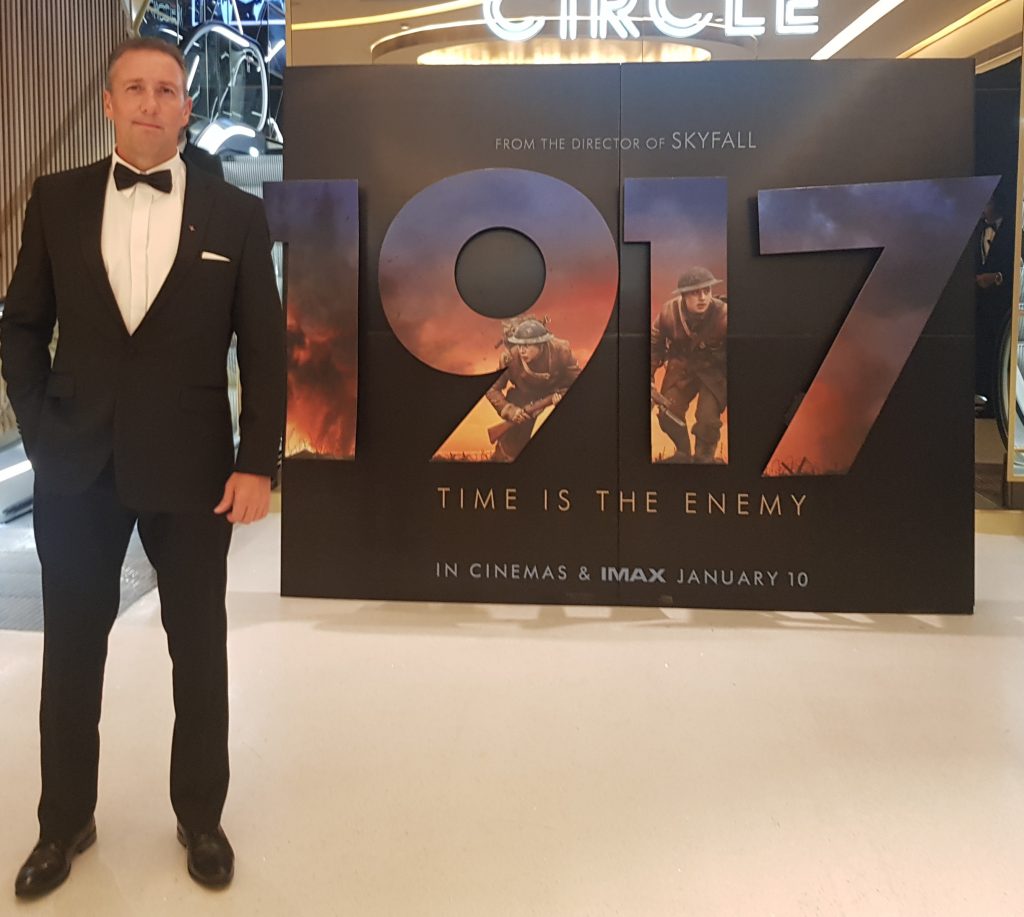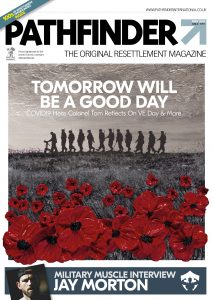Pathfinder International recently spoke to Paul Biddiss, a former Para now creating a new career in the movie industry as an advisor, with recent projects including the Oscar winning 1917 and current hit series on the small screen – Gangs of London.
Firstly Paul tell us a bit about your military service…

I served 24 years in the Parachute Regiment, I started my resettlement two years in advance of my exit date, focusing on close protection, surveillance and counter fraud investigations.
Going from the military into the movies is not your average resettlement story, how did all of that come about?
I never thought about the film industry as a second career, so it was not a planned move. I simply had some down time between private security tasks and applied to an advertisement asking for ex-military to do parts in a film called “Monument’s Men”.
The director was George Clooney, I was in the right place and right time during a scene setup to offer some small advice as the main military adviser was busy elsewhere. He took the advice and ran with it and it all started from there.
Tell us a little about some of the movies you have been involved in?
I had helped select and train extras on films such as Fury and Mission Impossible, but on a small scale as I was yet unknown. My first big break was for BBC War and Peace. I got the call and had three days to learn Napoleonic drill and tactics before flying out to Lithuania to train over 500 extras for the big battle scenes. Once I finished that I flew out to Tenerife to advise on the Jason Bourne project.

My reputation progressed as I got to work with more esteemed cast and crew and word of mouth recommendations increased. You do not apply for these jobs; it is based on recommendations.
I have worked on such projects as Justice League, Death of Starlin, Peterloo, Kingsman, Transformers, Strikeback and my proudest production 1917.
Which movie projects stand out for you?
Obviously 1917 and Strikeback have a special place on my CV, but one of the standout projects was to coordinate the Suez Canal jump scene on The Crown. My late father jumped at Suez in 1956 with 3 para and myself being 3 para it was a great honour to get the scenes as authentic as I could.
How do others leaving the military go about getting into the industry?
I receive quite a few emails and messages to my company page asking this very question.
Firstly, there are no courses that are going to provide training for Military adviser roles in the industry.
I strongly recommend learning the rank structure from the grassroots up as an extra, the same way as I did. Chance and luck do play a part as it did for me, so do not expect things to happen after your first extra job.
The film industry structure is very much like the military in some ways and in others not so, set etiquette, knowing when to step in and offer advice to various departments and understanding your role is key, you can only offer advice, not demand it’s taken.
If you march in with an attitude demanding this and that, or barking orders at extras the director will just fire you on the spot and it will get around the industry very fast, work will dry up so you better start looking for a new career.
I set up a company due to high demand where I send Military advisers as my assistants who I have personally vetted and seen work as extras who I take under my wing on set and train. I have very high standards so I don’t take anyone on and everyone must maintain my standards and work ethic throughout both on and off set.
I like to set the same values and standards I was expected to hold while serving and I take no prisoners if anyone I employ slips away from them.
There is so much more to my task which I do from pre-production, filming and post production, but you might not have the page space!
Any tips and advice for people on resettlement in general and the movie industry?
As mentioned there are no courses for my role, however Pinewood Studios do offer courses such as location management, visual effects, costume design and makeup and these can be found on their website.
Within reason, tell us about your plans for the forthcoming year? (question supplied pre-COVID19)
Things are getting busier for 2020 that is for sure and with the huge success of 1917 my reputation as a Military adviser to the film and TV industry is well cemented. Due to non disclosure acts (NDA) I cannot mention the projects, but 2021 is already booked with some exciting projects lined up. One in particular being about the Falklands war.
You have been busy lately with the Oscars, what was that like?

An eye opener that is for sure. Who would of thought a member of “gungy three” (3 Para) walking the red carpet, being interviewed at the Royal premiere and BAFTAS for something you had worked on. I still have to pinch myself as in industry terms I have managed my career to my current level in a very short space of time.
Thanks for your time Paul and all the very best for the future.
For the record, the awards and nominations for 1917 were:
2 Golden Globes
Best film
Best director
7 Baftas
Best film
Best director
Best cinematography
Best sound
Best visual effects
Best production Design
Best British film
3 Oscars
Best cinematography
Best Sound
Best visual effects
It narrowly missed out on best picture and director which bookies tipped 1917 as winning based on the 103 awards it has already won.
Paul was Winning Contributor, of which Paul added: “this is a big deal to be when it’s a Military film and you’re the senior adviser!”
The film cost 100 million to make and is about to smash the 300 million mark at the box office.
Interview taken from the May issue of Pathfinder International magazine. Read the full issue for free here.
Interview with Pathfinder editor, Mal Robinson.

